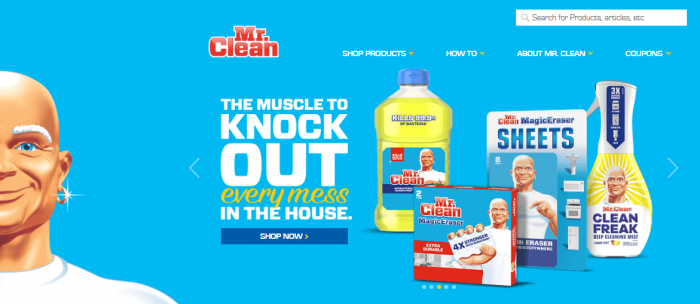Definition
A testimonial is a statement made by a customer describing a good experience with a product, service, or company. Testimonials are positive reviews that can influence decision making in other potential customers. They are also known as endorsements or social proof and can be written or in video format. This type of positive review is often used alongside word of mouth marketing strategies. Testimonials are a common feature of e-commerce sites, independent review websites, social media platforms, and business sites.
Impact of testimonials
Testimonials are a marketing tool whose main goals are improving a brand’s reputation, generating trust among the brand’s customer base, starting conversations about products or services, and ultimately, boosting a company’s bottom line.
A well-written testimonial has the ability to build credibility and trust in a brand. Individuals tend to trust statements from other customers rather than from companies because they can identify with them. These statements are usually perceived as more genuine and trustworthy, and they rank second in credibility to reviews from people they know personally. Once a positive reputation has been established, a customer will be more inclined to purchase the brand’s products or services.
Testimonials issued by celebrities may have an even bigger impact on potential customers and create widespread public attention. This is due to several reasons:
- People are more likely to pay attention to what a familiar face says.
- High-profile individuals already have a loyal audience.
- There’s an implicit association between celebrities and high-end or high-quality products.
When it comes to marketing products, testimonials are often more important than other details of the ad and may carry more weight than a product description. Consumers are used to scanning and skimming, so product descriptions may not get their full attention. However, a well-designed testimonial can increase the impact of product descriptions and move the customer further along towards conversion.
In that sense, testimonials can influence buying decisions and lead to increased sales. Not only may customers be more likely to make a purchase after reading a testimonial, but also they may be inclined to spend more on a business with excellent testimonials.
Types of testimonials
There are several types of testimonials based on who is behind them:
Celebrities
A celebrity testimonial (also known as an endorsement) relies on a well-known individual to promote a product, brand, or service.
Typical customers
This type of testimonial is made by an individual who fits in or is representative of the company’s target audience. When a genuine customer gives a convincing statement about a product or a brand, others might identify with this opinion. It is important that the recommending person is given authenticity with details such as a photo, name, age, profession, or other information. Testimonials made by typical consumers can also be used to underline the diversity of the customer base.

Screenshot of helpscout.com, showing an example for the use of typical customers as testimonials
Expert endorsements
Testimonials tend to be more effective if they are perceived to come from someone trustworthy or with higher knowledge. This is why endorsements made by experts can have a strong impact on the audience. An engineer, for example, could serve as a testimonial for cars, an architect for building materials. Sometimes there is an overlap with the use of celebrities as testimonials, for instance when the celebrity is a proven expert on the product to be advertised.
Fictional characters
Businesses may want to create a fictional character that represents their typical customer and use that character for testimonial purposes for several years. Animated comic characters can add a touch of humor to the testimonial. A prominent example of this type of testimonial is Mr. Clean.

Screenshot with a fictional character used as a testimonial of mrclean.com
Things to consider when using testimonials
- Testimonials can give off powerful trust signals as long as they are credible. To increase the credibility of a testimonial, businesses can add the photo and name of the person making the statement, or have them mention a typical pain point. Moreover, the statement should be specific when describing problems, benefits, and how a product or service helped them.
- Relevance and fit are crucial. When working with expert endorsements, it is essential that the person behind the testimonial has expertise in a field that is relevant. There must be a fit between product and testimonial so that the endorsement doesn’t come across as generic or dishonest.
- Celebrities alone do not guarantee success. Similarly, choosing a celebrity to endorse a brand based on a large social media following will not be automatically effective. For that to happen, the chosen celebrity must be recognized by the brand’s target audience. The product or service endorsed should also fit within the celebrity’s lifestyle.
The risks of using testimonials
The use of this marketing tool can be an effective form of online and offline advertising, but it is not without risks. For example, the indiscriminate use of these endorsements can lead to the so-called Pinocchio effect, where tell-tale signs of deception become evident to the audience. Moreover, customers now have access to a wide range of information via social media and other online sources, so it is easier for them to identify misleading statements.
The Vampire effect may occur in celebrity endorsements. This happens when the personality’s popularity is so great that it overshadows the product or service endorsed. In such cases, the audience may remember the celebrity but not the product, and this offsets the intended persuasive effect of the testimonial.
Lastly, celebrity endorsements create a lasting connection between the celebrity and the brand. Any negative actions or headlines linked to the celebrity may be detrimental to the brand’s reputation. In other words, the celebrity’s reputation becomes a determining factor in the mind of the target audience.
Related links
- https://blog.hubspot.com/service/testimonial-lead-gen
- https://www.orbitmedia.com/blog/how-to-write-testimonials-examples/
